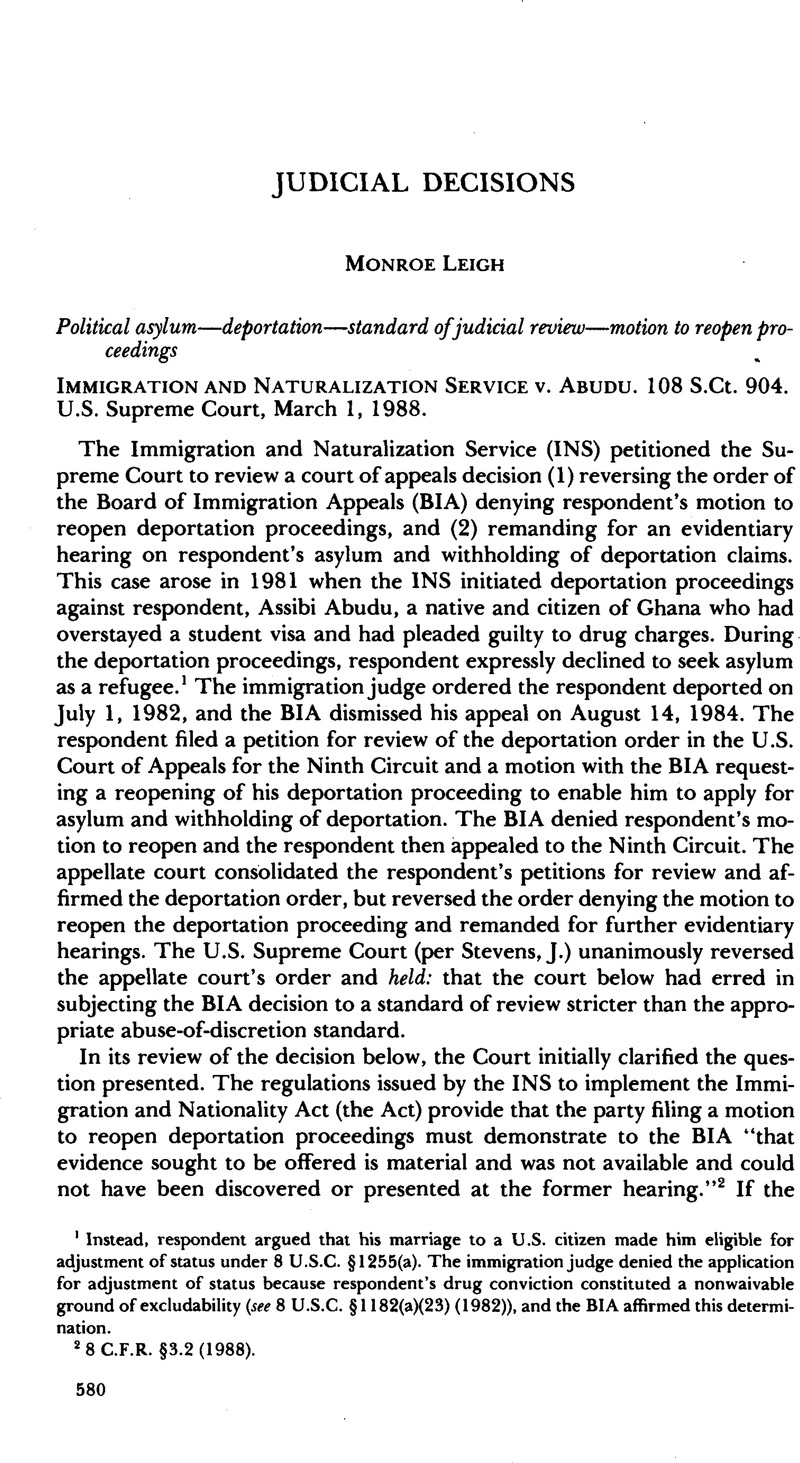No CrossRef data available.
Published online by Cambridge University Press: 27 February 2017

1 Instead, respondent argued that his marriage to a U.S. citizen made him eligible for adjustment of status under 8 U.S.C. § 1255(a). The immigration judge denied the application for adjustment of status because respondent’s drug conviction constituted a nonwaivable ground of excludability (see 8 U.S.C. §1182(a)(23) (1982)), and the BIA affirmed this determination.
2 8 C.F.R. §3.2(1988).
3 Id. §208.11.
4 108 S.Ct. 904, 908.
5 The appellate court “did not discuss, as a separate matter, the ‘failure to explain’ ground in the BIA’s decision,” and also stated in its opinion that “the sole issue [in this case] is whether petitioner presented a prima facie case for reopening.” Id. at 910 (quoting Abudu v. INS, 802 F.2d 1096, 1100 (9th Cir. 1986) (case below)).
6 Id. at 911.
7 Abudu, 802 F.2dat 1101 (quoting Maroufi v. INS, 772 F.2d 597, 599 (9th Cir. 1985)).
8 Id.
9 108 S.Ct. at 912 (citing INS v. Jong Ha Wang, 450 U.S. 139, 144 n.5 (1981); INS v. Rios-Pineda, 471 U.S. 444, 449 (1985); INS v. Phinpathya, 464 U.S. 183, 188 n.6 (1984)).
10 Id.
11 Id. at 912–13.
12 Jong Ha Wang, 450 U.S. at 144 n.5 (quotingjudge Wallace’s dissenting opinion in Villena v. INS, 622 F.2d 1352, 1362 (9th Cir. 1980) (en banc)).
13 108 S.Ct. at 914. The INS regulations regarding motions to reopen deportation proceedings establish the procedure in the negative, i.e., “Motions to reopen in deportation proceedings shall not be granted unless . . . . “ 8 C.F.R. §3.2 (emphasis added). See also id. §242.22.
14 108 S.Ct. at 914–15.
15 5 U.S.C. §706 (1982).